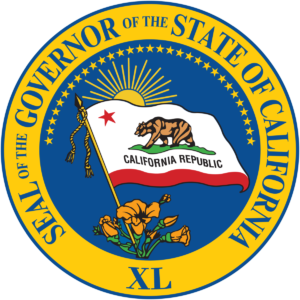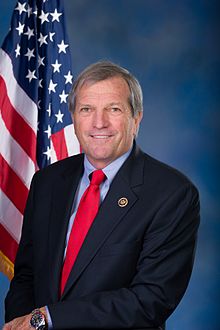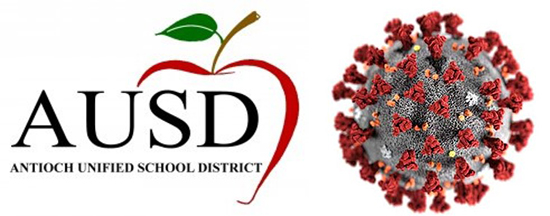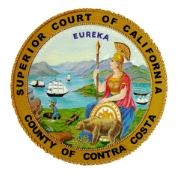
Screenshot of Dr. Ori Tzvieli, Contra Costa County Acting Health Officer speaking during the joint press conference of Bay Area health officials on Facebook Live, Monday, March 16, 2020.
Unprecedented order ffective midnight tonight, Monday night, March 16, 2020
During a press conference, Monday afternoon, March 16, 2020, with seven health officials and other officials from the San Francisco Bay Area, including six counties and the City of Berkeley, it was announced that a shelter in place order will go into effect at midnight tonight.
The counties included Contra Costa, Santa Clara, Alameda, Marin, San Francisco and San Mateo. Included in the press conference was Dr. Ori Tzvieli, Contra Costa Acting Health Officer, who issued the following:
ORDER OF THE HEALTH OFFICER OF THE COUNTY OF CONTRA COSTA DIRECTING
ALL INDIVIDUALS LIVING IN THE COUNTY TO SHELTER AT THEIR PLACE OF RESIDENCE EXCEPT THAT THEY MAY LEAVE TO PROVIDE OR RECEIVE CERTAIN ESSENTIAL SERVICES OR ENGAGE IN CERTAIN ESSENTIAL ACTIVITIES AND WORK FOR ESSENTIAL BUSINESSES AND GOVERNMENTAL SERVICES; EXEMPTING INDIVIDUALS EXPERIENCING HOMELESSNESS FROM THE SHELTER IN PLACE ORDER BUT URGING THEM TO FIND SHELTER AND GOVERNMENT AGENCIES TO PROVIDE IT; DIRECTING ALL BUSINESSES AND GOVERNMENTAL AGENCIES TO CEASE NON-ESSENTIAL OPERATIONS AT PHYSICAL LOCATIONS IN THE COUNTY; PROHIBITING ALL NON-ESSENTIAL GATHERINGS OF ANY NUMBER OF INDIVIDUALS; AND ORDERING CESSATION OF ALL NON-ESSENTIAL TRAVEL
When is it effective? Tonight at Midnight (March 17, 2020 at 12:01 am) though April 7th, unless extended or rescinded.
What is the Order? All individuals currently living within Contra Costa County (the “County”) are ordered to shelter at their place of residence
Why? The intent of this Order is to ensure that the maximum number of people self-isolate in their places of residence to the maximum extent feasible, while enabling essential services to continue, to slow the spread of COVID-19 to the maximum extent possible. If people need to leave their homes as allowed to obtain or perform vital services, they should practice social distancing.
When am I allowed to leave my house, and what are considered allowed Essential Activities?
- To engage in activities or perform tasks essential to their health and safety, or to the health and safety of their family or household members (including, but not limited to, pets), such as, by way of example only and without limitation, obtaining medical supplies or medication, visiting a health care professional, or obtaining supplies they need to work from home.
- To obtain necessary services or supplies for themselves and their family or household members, or to deliver those services or supplies to others, such as, by way of example only and without limitation, canned food, dry goods, fresh fruits and vegetables, pet supply, fresh meats, fish, and poultry, and any other household consumer products, and products necessary to maintain the safety, sanitation, and essential operation of residences.
- To engage in outdoor activity, provided the individuals comply with Social Distancing Requirements as defined in this Section, such as, by way of example and without limitation, walking, hiking, or running. To the extent individuals are using shared or outdoor spaces, they must at all times as reasonably possible maintain social distancing of at least six feet from any other person when they are outside their residence.
- To perform work providing essential products and services at an Essential Business or to otherwise carry out activities specifically permitted in this Order, including Minimum Basic Operations.
- To care for a family member or pet in another household.
- To work for or obtain services at any “Healthcare Operations” including hospitals, clinics, dentists, pharmacies, pharmaceutical and biotechnology companies, other healthcare facilities, healthcare suppliers, home healthcare services providers, mental health providers, or any related and/or ancillary healthcare services. This does not include gyms or fitness centers.
- To provide any services or perform any work necessary to the operations and maintenance of “Essential Infrastructure,” including, but not limited to, public works construction, construction of housing (in particular affordable housing or housing for individuals experiencing homelessness), airport operations, water, sewer, gas, electrical, oil refining, roads and highways, public transportation, solid waste collection and removal, internet, and telecommunications systems (including the provision of essential global, national, and local infrastructure for computing services, business infrastructure, communications, and web-based services), provided that they carry out those services or that work in compliance with Social Distancing Requirements as defined this Section, to the extent possible.
- All first responders, emergency management personnel, emergency dispatchers, court personnel, and law enforcement personnel, and others who need to perform essential services are categorically exempt from this Order. e. For the purposes of this Order, covered businesses include any for-profit, non-profit, or educational entities, regardless of the nature of the service, the function they perform, or its corporate or entity structure.
- What essential businesses and services will remain open?
- Healthcare Operations and Essential Infrastructure;
- Grocery stores, certified farmers’ markets, farm and produce stands, supermarkets, food banks, convenience stores, and other establishments engaged in the retail sale of canned food, dry goods, fresh fruits and vegetables, pet supply, fresh meats, fish, and poultry, and any other household consumer products (such as cleaning and personal care products). This includes stores that sell groceries and also sell other non-grocery products, and products necessary to maintaining the safety, sanitation, and essential operation of residences;
- Food cultivation, including farming, livestock, and fishing; Businesses that provide food, shelter, and social services, and other necessities of life for economically disadvantaged or otherwise needy individuals;
- Newspapers, television, radio, and other media services;
- Gas stations and auto-supply, auto-repair, and related facilities;
- Banks and related financial institutions;
- Hardware stores; Plumbers, electricians, exterminators, and other service providers who provide services that are necessary to maintaining the safety, sanitation, and essential operation of residences, Essential Activities, and Essential Businesses;
- Businesses providing mailing and shipping services, including post office boxes;
- Educational institutions—including public and private K-12 schools, colleges, and universities—for purposes of facilitating distance learning or performing essential functions, provided that social distancing of six-feet per person is maintained to the greatest extent possible;
- Laundromats, dry cleaners, and laundry service providers;
- Restaurants and other facilities that prepare and serve food, but only for delivery or carry out. Schools and other entities that typically provide free food services to students or members of the public may continue to do so under this Order on the condition that the food is provided to students or members of the public on a pick-up and take-away basis only. Schools and other entities that provide food services under this exemption shall not permit the food to be eaten at the site where it is provided, or at any other gathering site;
- Businesses that supply products needed for people to work from home;
- Businesses that supply other Essential Businesses with the support or supplies necessary to operate;
- Businesses that ship or deliver groceries, food, goods or services directly to residences;
- Airlines, taxis, and other private transportation providers providing transportation services necessary for Essential Activities and other purposes expressly authorized in this Order;
- Home-based care for seniors, adults, or children;
- Residential facilities and shelters for seniors, adults, and children;
- Professional services, such as legal or accounting services, when necessary to assist in compliance with legally mandated activities;
- Childcare facilities providing services that enable employees exempted in this Order to work as permitted.
What about Travel? All travel, including, but not limited to, travel on foot, bicycle, scooter, motorcycle, automobile, or public transit, except Essential Travel and Essential Activities is prohibited.
People must use public transit only for purposes of performing Essential Activities or to travel to and from work to operate Essential Businesses or maintain Essential Governmental Functions. People riding on public transit must comply with Social Distancing Requirements as defined in Section 10 below, to the greatest extent feasible. This Order allows travel into or out of the County to perform Essential Activities, operate Essential Businesses, or maintain Essential Governmental Functions.
What if I don’t comply? Violation of or failure to comply with this Order is a misdemeanor punishable by fine, imprisonment, or both. (California Health and Safety Code § 120295, et seq.)
Health officers from Santa Clara, Alameda, Contra Costa, Marin, San Francisco, and San Mateo counties, along with the City of Berkeley are taking a bold, unified step to slow the spread of novel coronavirus (COVID-19) and preserve critical health care capacity across the region.
We are issuing an order that requires most people stay home starting as soon as possible, but no later than 12:01 a.m. on Tuesday, March 17, 2020, unless they are engaged in essential activities.
“We’re at a critical moment. We need to act swiftly to flatten the curve of COVID-19 in order to keep our healthcare delivery system from becoming overwhelmed,” said County Health Officer Dr. Sara Cody. “Each of us has to do everything we can to slow the spread of COVID-19. The paradox is this: to come together as a community and protect each other, we need to physically stay apart for a while.”
For most people, this means you and those you live with should remain at home. You are allowed to leave your home for specified reasons to make sure you have the necessities of life such as getting food and medical supplies. You are also allowed to go outside to take care of pets, go on a walk, and just get outside, so long as you do not congregate in a group and maintain at least six feet of distance between you and other people. If you are sick you should self-isolate, including, to the extent you can, from others you live with.
The term “shelter in place” means to stay in your home and not leave unless necessary for one of the designated exceptions. Some reasons you would leave your home are to get food, to get a prescription, to see a doctor, to go to work if your work is essential, to take your child(ren) to and from childcare, and to help people you care for get the things they need to live and be healthy and safe.
What is the difference between “sheltering in place” and “social distancing”?
Sheltering in place is a more rigorous form of social distancing. There are some differences. Sheltering at home means:
– Stay home
– Only go out for “essential activities,” to work for an “essential business,” or for “essential travel” as those terms are defined in the Order, and as discussed further below
– Stay 6 feet or more away from others
– No gatherings
The other principles of social distancing and mitigative hygiene will continue to apply whenever feasible. These include washing hands, using hand sanitizer, disinfecting surfaces, not going out if sick, and staying at least six feet away from others.
Essential government services — those necessary to protect the health, safety and welfare of the community – will remain open. All Santa Clara County hospitals and health clinics continue to remain open. Services provided by law enforcement and first-responders will continue.
This order was issued after officials throughout the Bay Area saw a significant increase in spread of COVID-19 over the weekend.
Following is the joint press statement:
Seven Bay Area Jurisdictions Order Residents to Stay Home
March 16, 2020 NEWS RELEASE
COVID-19 spread reduces activity to only most essential needs.
Santa Clara, CA – Seven health officers within six Bay Area counties are taking a bold, unified step to slow the spread of novel coronavirus (COVID-19) and preserve critical health care capacity across the region.
On March 16, the Public health officers of Alameda, Contra Costa, Marin, San Francisco, San Mateo, and Santa Clara counties announced, with the City of Berkeley, a legal order directing their respective residents to shelter at home for three weeks beginning March 17. The order limits activity, travel and business functions to only the most essential needs. The guidance comes after substantial input from the U.S. Centers for Disease Control and Prevention (CDC) and best practices from other health officials around the world.
Scientific evidence shows social distancing is one of the most effective approaches to slow the transmission of communicable disease. The shelter-at-home order follows new data of increasing local transmission of COVID-19, including 258 confirmed cases of COVID-19 with 4 deaths shared by the seven jurisdictions, as of March 15. The Bay Area’s collected confirmed cases is more than half of California’s case count. This does not account for the rapidly increasing number of assumed cases of community transmission. As testing capacity increases, the number of laboratory-confirmed COVID-19 cases is expected to increase markedly.
“Temporarily changing our routine is absolutely necessary to slow the spread of this pandemic,” said Dr. Sara Cody, Santa Clara County Public Health Officer. “The Health Officers from the largest jurisdictions in the San Francisco Bay Area are united and we are taking this step together to offer the best protection to our respective communities.”
The order defines essential activities as necessary for the health and safety for individuals and their families. Essential businesses allowed to operate during the recommended action include health care operations; businesses that provide food, shelter, and social services, and other necessities of life for economically disadvantaged or otherwise needy individuals; fresh and non-perishable food retailers (including convenience stores); pharmacies; child care facilities; gas stations; banks; laundry businesses and services necessary for maintaining the safety, sanitation and essential operation of a residence. In addition, health care, law and safety, and essential government functions will continue under the recommended action. For the full list, please see section 10 of the order.
“While the goal is to limit groups congregating together in a way that could further spread the virus, it is not complete social shutdown,” said Dr. Matt Willis, Marin County’s Public Health Officer. “You can still complete your most essential outings or even engage in outdoor activity, so long as you avoid close contact.”
On January 30, the World Health Organization declared the outbreak a public health emergency of international concern, and the United States followed the next day by declaring a federal public health emergency. On February 26, the federal Centers for Disease Control and Prevention (CDC) confirmed community transmission of COVID-19 in the San Francisco Bay Area, meaning the afflicted patient had no signs of associating with anyone who had been diagnosed with the virus. This collective legal order comes one day after Governor Gavin Newsom ordered older adults, age 65 and older, stay home.
“Limiting interpersonal interactions is a proven strategy to slow and reduce viral spread and protect the most vulnerable among us — individuals who are 60 years of age and older, people with chronic and underlying medical conditions, and people experiencing homelessness.” Dr. Erica Pan said, “Our counties share borders and many people live in one county and work in another. It’s absolutely critical for us to be aligned on COVID-19 mitigation efforts.”
For more information about COVID-19 activities in these areas, visit the Alameda, Contra Costa, Marin, Santa Clara, San Francisco, San Mateo, or Berkeley COVID-19 websites.
 SACRAMENTO – Governor Gavin Newsom today, Monday, March 16, 2020 issued an executive order that authorizes local governments to halt evictions for renters and homeowners, slows foreclosures, and protects against utility shutoffs for Californians affected by COVID-19.
SACRAMENTO – Governor Gavin Newsom today, Monday, March 16, 2020 issued an executive order that authorizes local governments to halt evictions for renters and homeowners, slows foreclosures, and protects against utility shutoffs for Californians affected by COVID-19.











 Despite school closures
Despite school closures BART will continue to provide regular service for riders performing essential activities and for riders travelling to and from “essential business” work, with long enough trains to allow for social distancing. Based on ridership levels last week and over the weekend, social distancing is happening on BART. Last week BART served 24%-61% fewer riders depending on the day of the week. There is enough space for riders to remain 6 feet from each other. Increased cleaning and disinfecting are continuing in stations and trains.
BART will continue to provide regular service for riders performing essential activities and for riders travelling to and from “essential business” work, with long enough trains to allow for social distancing. Based on ridership levels last week and over the weekend, social distancing is happening on BART. Last week BART served 24%-61% fewer riders depending on the day of the week. There is enough space for riders to remain 6 feet from each other. Increased cleaning and disinfecting are continuing in stations and trains. 


 In response to the unique and continuing public safety challenge presented by the coronavirus (COVID-19) and the numerous public health orders suggesting or requiring that public gatherings be limited:
In response to the unique and continuing public safety challenge presented by the coronavirus (COVID-19) and the numerous public health orders suggesting or requiring that public gatherings be limited:













